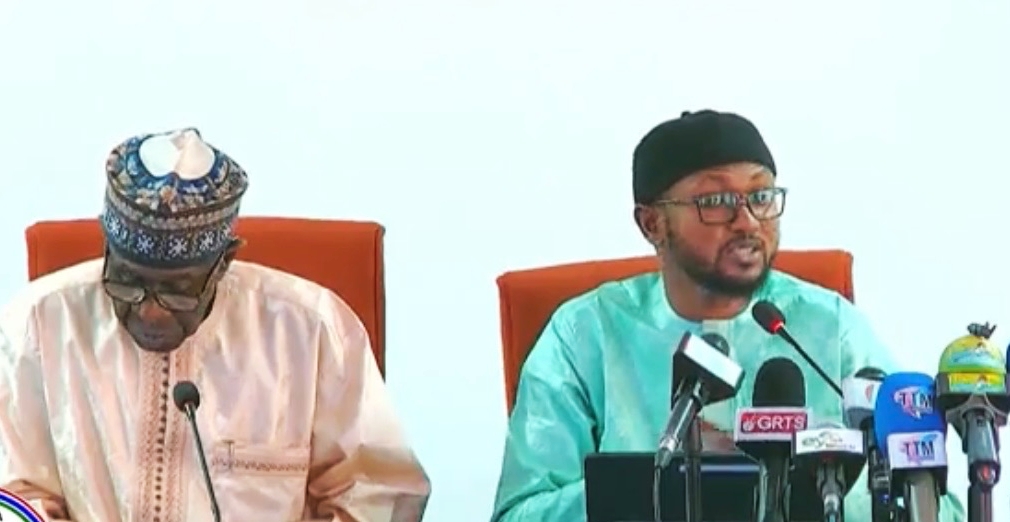Gambiaj.com – (BANJUL, The Gambia) – In his press briefing on Wednesday, the Minister of Lands, Hamat Bah, and his staff provided the media with key details from the investigating task force showing gross malpractices in handling the Kamalo land development. The issue of Kamalo was raised on Monday at a press conference by Ousainou Darboe, leader of the United Democratic Party (UDP), who questioned the status of investigations into former Minister Abba Sanyang’s land allocations in the Kamalo area.
In the third quarter of 2023, the government of The Gambia formed a multi-sectoral task force to investigate the allocation of plots at the Kamalo Industrial Layout. This task force, made up of representatives from various ministries and agencies, was created in response to public concerns about improper land allocations. Their goal was to thoroughly examine the entire allocation process.
After months of investigation, the task force uncovered numerous irregularities in the allocation of plots at the Kamalo Industrial Layout. These irregularities included instances of favoritism, corruption, and a lack of transparency.
The findings include missing master files, irregular allocations,…
The task force’s review revealed several critical issues. One major problem was the absence of a coherent national land policy, which resulted in confusion and a lack of direction in land administration. Additionally, the master file for Kamalo, which contained essential correspondence and approvals, was missing. Several attempts were made to retrieve the file but were unsuccessful.
This hindered the task force’s ability to fully understand how the industrial layout was initiated and approved. This lack of proper record-keeping and oversight created a breeding ground for corruption and inefficiency in land management. Without a clear and transparent system in place, it was difficult to determine the rightful owners of the land parcels and ensure fair and equitable distribution.
Another significant issue was the lack of an Environmental Impact Assessment (EIA) before land allocations and development began. This oversight poses serious risks to the Tanbi Wetland National Park’s ecosystem, which plays a crucial role in flood control and supports diverse wildlife, including migratory species.
Furthermore, the absence of proper EIA procedures also raises concerns about the potential negative impact of land development on the water quality and overall health of the wetland. Without thorough assessments of the environmental consequences, there is a heightened risk of irreversible damage to the delicate balance of the ecosystem.
The task force also discovered several instances of land allocations without proper ministerial approval. Some applicants were allocated multiple plots without justifiable reasons, while others received allocations without providing the necessary business registration certificates or application fees.
No criminal, but administrative sanctions
To address these issues, the task force made several recommendations. They called for the development and implementation of a national land policy to provide clear guidelines for land administration. They also recommended establishing a proper filing system to ensure all relevant documents are available and retrievable.
The task force emphasized the need for comprehensive environmental impact assessments at Kamalo to evaluate and mitigate environmental risks. They also suggested revoking allocations that did not follow due process, particularly those at Kamalo Extension and those lacking ministerial approval, in order to uphold both the integrity of the allocation process and the ecological health of the Tanbi Wetland.
Additionally, the task force recommended introducing administrative sanctions for officials involved in improper allocations and improving transparency in the allocation process.
The task force’s findings highlight the need for immediate action to correct the irregularities and ensure that future land allocations adhere to legal and environmental standards. This is crucial for maintaining the integrity of the allocation process and protecting the ecological health of the Tanbi Wetland.
The government is now implementing these recommendations, according to Minister Hamat Bah, to ensure fairness and sustainability in future land allocations.










